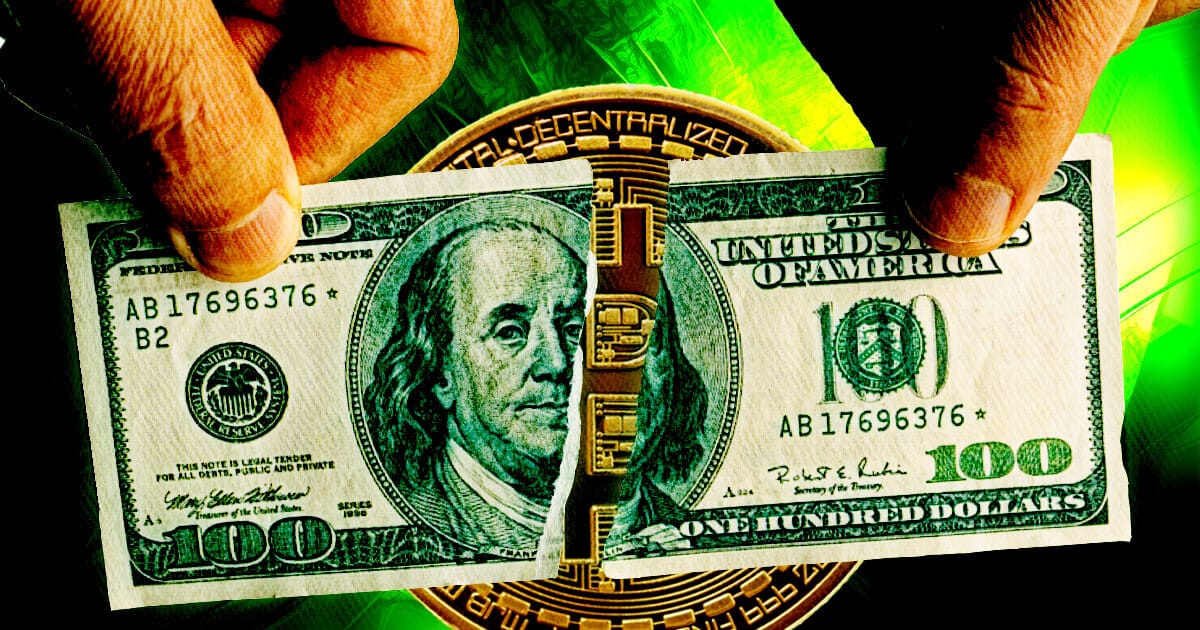Bitcoin Surges to $87K as Dollar Weakens Amid Global Economic Shifts

On April 20, 2025, Bitcoin experienced a notable price increase, climbing $1000 to reach $87,000, its highest level since April 2. This surge comes as the U.S. dollar shows signs of weakening, a trend that has sparked discussions about de-dollarization and its broader implications for global markets. The cryptocurrency's rise reflects growing investor interest in Bitcoin as a potential hedge against dollar instability, a sentiment that has been building amid recent geopolitical and economic developments.
The backdrop to Bitcoin's rally includes a series of economic policy shifts under the Trump administration. Just over a week earlier, on April 10, Bitcoin had risen to $81,000 following Trump's announcement of a 90-day tariff pause on countries not engaging in retaliatory trade measures. However, tensions escalated again with a reported 125% tariff increase on China. These moves have introduced significant volatility into global markets, with cryptocurrencies like Bitcoin often reacting sharply to such changes. The interplay between trade policies and digital assets underscores the complex dynamics at play, as investors navigate uncertainty in traditional financial systems.
there it is: dollar disintegrating and suddenly bitcoin soars $1000 higher to $86750, highest since April 2. Looks like regime shift finally kicked in
— zerohedge (@zerohedge) April 21, 2025
Meanwhile, gold surging to fresh record highs
DeDollarization and Its Impact on Crypto Markets
Adding to the economic complexity is the ongoing trend of de-dollarization, a topic explored in depth by J.P. Morgan Research. The report suggests that while the U.S. dollar's dominance in global trade remains structurally entrenched, diversification away from the dollar is gaining traction. This shift could depreciate U.S. assets over time, potentially fueling inflationary pressures domestically while enhancing U.S. competitiveness abroad. For Bitcoin, this environment has historically been favorable, with the cryptocurrency posting gains of 5.5% during similar periods of economic policy upheaval. As the dollar's global role evolves, Bitcoin's appeal as an alternative store of value may continue to grow, particularly if trade tensions and policy uncertainties persist.
The recent market movements also align with broader trends in investor behavior. Amid fears of a weakening dollar, many are turning to assets like Bitcoin to diversify their portfolios. While the long-term effects of de-dollarization remain uncertain, the current economic climate suggests that cryptocurrencies could play an increasingly prominent role in global finance.

